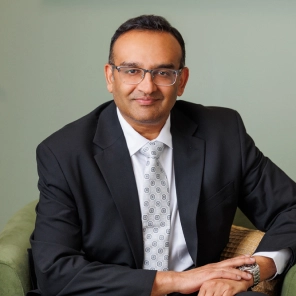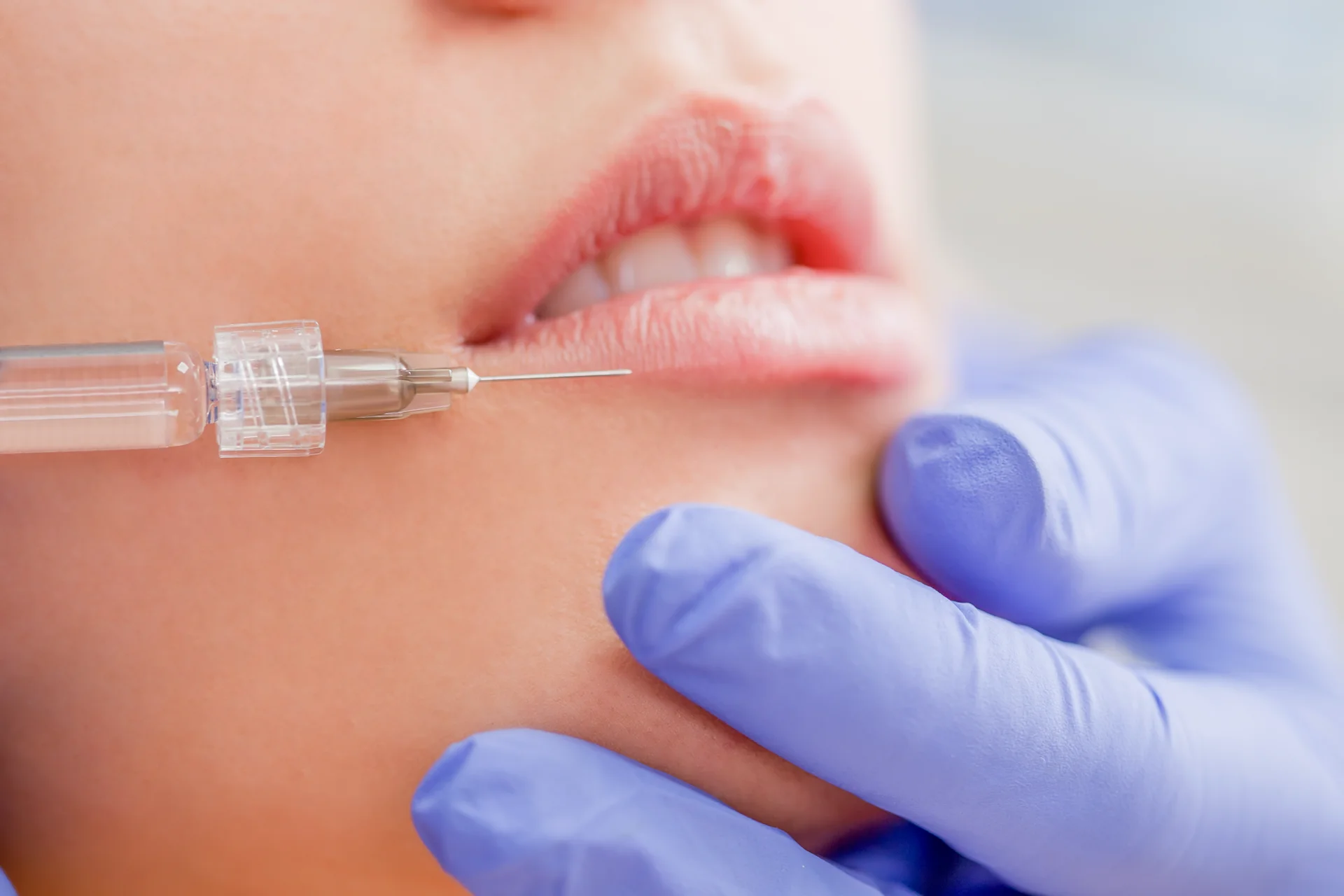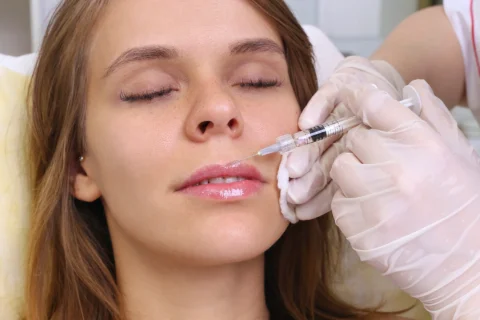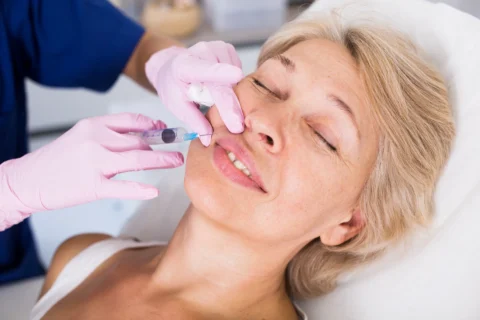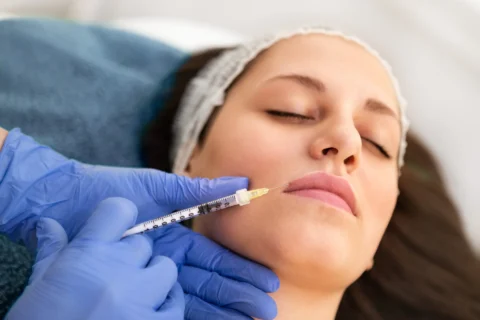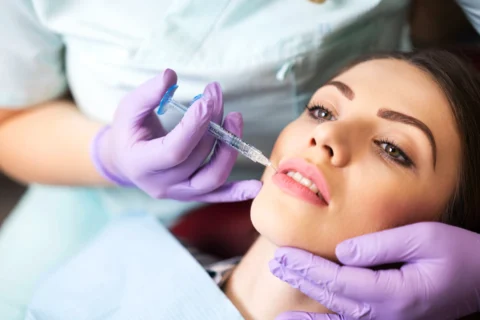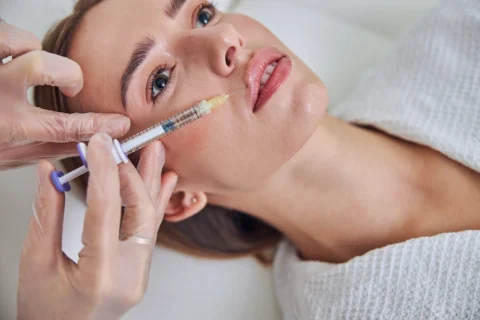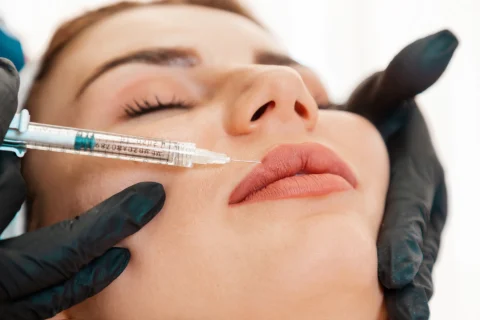Post-Procedure Dietary Precautions for Comfort and Healing
Lip filler treatments have grown tremendously in popularity in recent years as a minimally invasive procedure for enhancing one’s youthful appearance. Dermal fillers made from hyaluronic acid are frequently used to add volume and fullness to the lips, providing a subtle yet defined look.
As with any cosmetic procedure, it is important to understand proper aftercare and follow the lip filler aftercare instructions from a medical professional. This includes guidance on what to eat after lip injections to support the natural healing process.
Many are curious whether there are any restrictions on diet after undergoing lip filler injections. This article will guide you on what to avoid eating after your lip filler procedure.
The Lip Filler Procedure
Lip augmentation procedures, also called lip fillers or lip injections, are designed to enhance the fullness and contours of the lips. The goal of the procedure is to add volume to create a more defined lip shape and border, resulting in a more youthful and attractive appearance.
Types of fillers
There are various types of dermal fillers used for lip augmentation that differ in terms of composition and how long the effects last.
| Type of Filler | Description |
| Hyaluronic Acid (HA) Fillers | These fillers contain hyaluronic acid, a substance that is naturally produced by the body. They are the most common type of filler used for lip filler treatments and include brands such as Juvederm and Restylane. |
| Collagen Lip Fillers | These fillers contain collagen, a protein that is naturally found in the body. They have become less popular in recent years due to the comfort and more naturalistic appearance provided by HA fillers. |
| Polymethyl-methacrylate Microspheres (PMMA) | These fillers contain tiny beads of PMMA that are suspended in a gel-like substance. They are semi-permanent fillers that can last for several years. |
| Calcium Hydroxylapatite | This filler contains calcium hydroxylapatite, a substance that is naturally found in bones. It is a semi-permanent filler that can last for up to a year. |
| Silicone Fillers | These fillers contain silicone, a synthetic material that is not naturally found in the body. They are permanent fillers that can last for many years. |
| Fat Injections | This type of filler involves taking fat from another part of the body and injecting it into the lips. It is a natural and long-lasting option but may require multiple treatments to achieve the desired results. |
Immediate Aftercare: The First 6-8 Hours
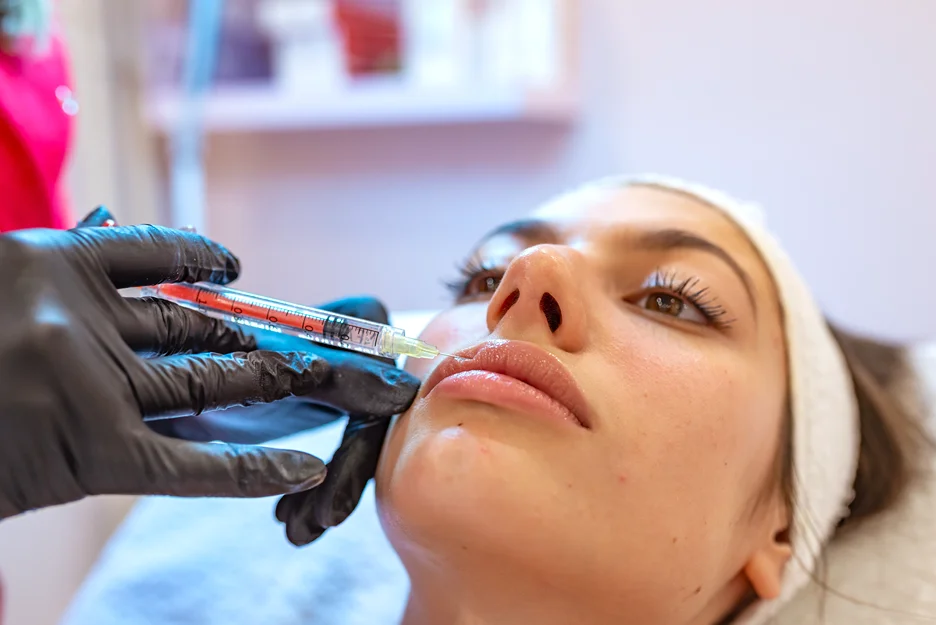
In the initial period following lip filler injections, it is important to prioritize rest and avoid anything that could increase blood flow and pressure at the treatment sites. This is key to reducing the risk of potential complications.
Any activity that markedly raises the heart rate or overall body temperature should be limited, as increased circulation could disrupt how the injected filler material integrates into the surrounding tissues. Strenuous exercise, aerobic classes, household tasks, intimacy – all are best avoided.
Avoiding hot foods like hot sandwiches, and warm beverages
Hot foods and warm beverages should be strictly limited. The heat from consumption can dilate blood vessels and affect vessel integrity at the injection locations during this initial stabilization period. Consuming anything hot risks vascular occlusion, which is when a blood vessel becomes blocked. This cuts off blood and oxygen supply to surrounding tissues, with a small risk of tissue injury or damage.
Dietary Restrictions and Recommendations
In the first few days following lip filler injections, certain foods and drinks should either be avoided or consumed mindfully.
What to Consume
- Gentler food options like soft, protein-rich meals are preferable as they support natural tissue recovery. Good choices include eggs, yogurt, soup, smoothies, and hummus. Anti-inflammatory foods rich in omega-3 fatty acids further aid healing.
- Drinking plenty allows the lips to remain plump and supple, which promotes the lips’ natural healing process. Dehydration has the opposite effect, potentially disturbing how filler integrates with tissues.
What to Avoid
- Spicy, salty, crunchy, or messy foods that require excessive chewing could cause discomfort or swelling at the injection sites as they heal. Sugary foods pose similar concerns as the granular texture could irritate sensitive skin.
- Alcohol, sugary drinks, and very hot beverages should also be limited initially. Alcohol and high sugar intake can dehydrate the lips and cause vasodilation. This raises blood flow in close proximity to treatment areas during an important stabilization period.
Common Side Effects and How to Address Them
1. Swelling
Minor swelling, mild lip swelling, and slight discomfort are common side effects in the days following lip filler injections. Some puffiness helps the filler deposit smoothly. Most diminishes within 2 weeks as filler integrates.
Severe swelling is uncommon but could indicate an infection risk warranting prompt medical attention. Severe pain may also require evaluation, especially if accompanied by these other warning signs. Beyond the expected healing process, over-swelling requires close monitoring.
2. Pain
To manage pain, over-the-counter medications like paracetamol may suffice. Monitor for signs of relief – excessive or ongoing pain when medications don’t help could point to a more serious issue.
3. Potential severe complications
Rarely lip asymmetry, hard lumps, irregular shapes, or white spots known as vascular occlusion may occur due to blocked blood vessels during treatment. These persisting adverse effects should be discussed with your injector or doctor who may recommend additional treatments or steroids to aid correction.
Tissue death is extremely uncommon but a potential consequence if compromised blood flow causes an area’s loss of oxygen supply. Seek emergency help for persistent numbness or color changes in the skin or lips.
Additional Care Tips and Recommendations
- Moisturizing the lips frequently helps reduce dryness and flaking during the healing period. Over-the-counter lip balm, lip gloss, or lip liners can be used as these products hydrate without risk of irritation but a proper timeline should be followed.
- Follow-up appointments 1-2 weeks after injections are important. A cosmetic nurse or specialist will assess the settlement, note any adjustments, and address ongoing concerns. Regular monitoring ensures optimal lip augmentation outcomes.
- When sleeping, use 2-3 pillows to keep the head and lips elevated above the heart. This decreases pressure effects that could disrupt swelling resolution. Avoid traveling by air until all swelling subsides to prevent issues from cabin pressure changes.
Addressing Mental Health
Understanding the Emotional Impacts of Cosmetic Changes
Cosmetic procedures may provoke emotional adjustment, especially if recovering from illness. While fillers augment self-esteem for many, allow processing of feeling exposed or anxious about changes. Check-ins with a healthcare provider can help manage expectations.
With aftercare, results largely persist in highlighting one’s natural beauty. Seeking support for full well-being optimizes satisfaction from aesthetic enhancements seeking youthfulness.
Achieve Your Desired Results with Ethos Spa!
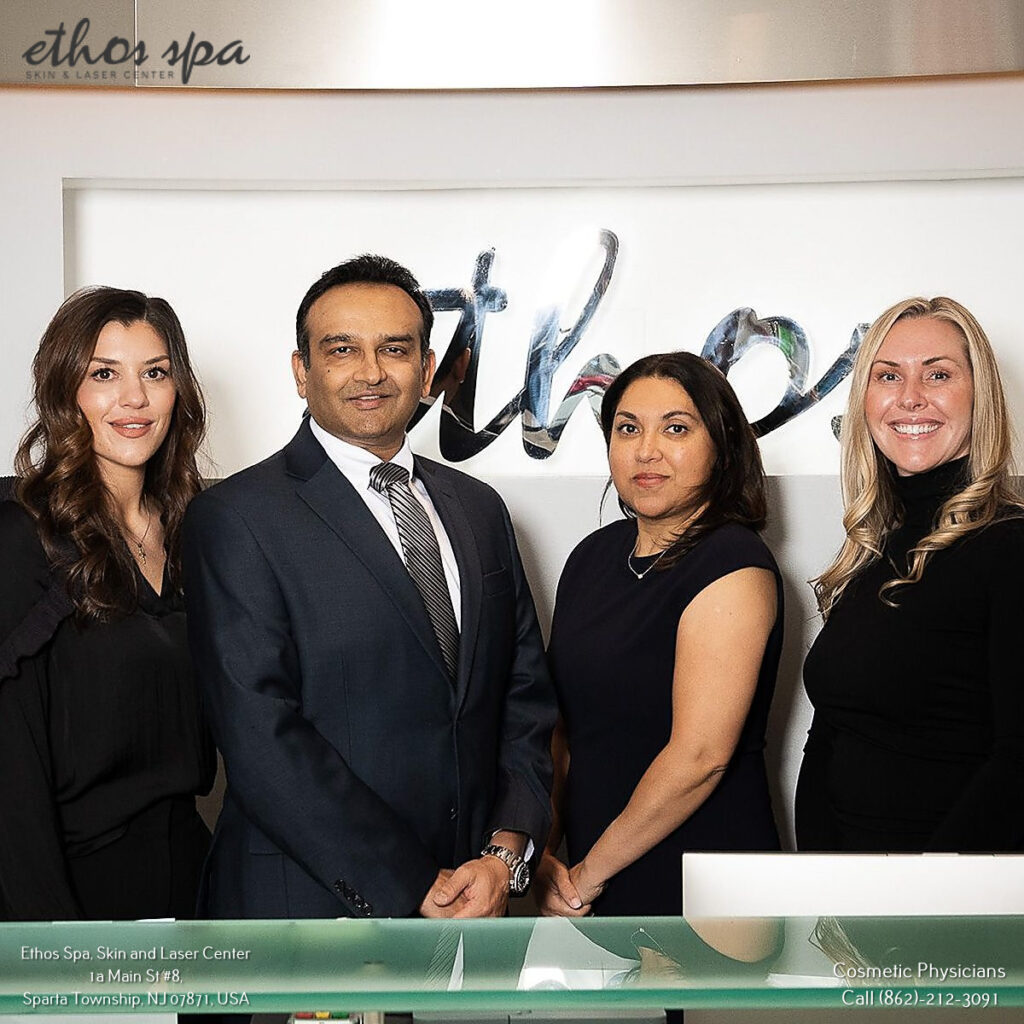
Undergoing lip filler injections at Ethos Spa allows you to achieve beautifully plumped, youthful-looking lips. By following your injector’s customized aftercare instructions, you set yourself up for maximum results – from the initial treatment through its full duration.
Our licensed and experienced cosmetic specialists will take the time to understand your goals and select the optimal filler approach. With proper home care, you can enjoy supple, defined lips for months.
Consult Ethos Spa for all your lip filler and skincare enhancement needs. Let our professionals help you look and feel your absolute best.
